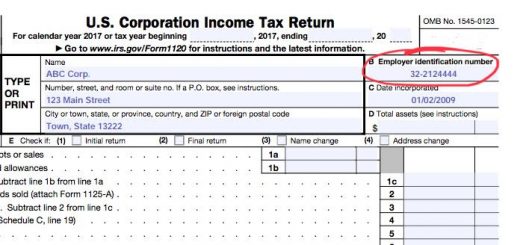What is the Definition of Business Travel? (It’ll Surprise You)
Table of Contents
Not sure what qualifies as business travel? Read to learn what is considered business travel and business travel expenses.

Please continue to the bottom of this article for instructions about how to deduct business travel expenses.
Introduction
The simplest business travel definition is travel that is undertaken for business purposes. Business travel does not include daily commutes. However, that does not really get to the gist of the question we’re really trying to answer.
More specifically, according to the IRS, the definition of business travel is travel the taxpayer does, ‘away from their home’ for business purposes.
In this post, we go over the definition of business travel. We also provide a business travel definition for the purpose of expenses. This includes what qualifies as business travel expenses for tax deduction purposes and how to deduct business travel expenses. This post includes the information needed for both personal and business tax returns.
For companies, business travel is a significant expense. For most companies, business travel is the largest expense. Therefore, it is important to understand the definition of business travel for expenses and accounting purposes. This way, both companies, and individual maximize their cost savings.
What is the definition of business travel?
According to the IRS, travel is considered ‘business travel’ and qualifies for tax-deductible business travel expenses when the travel is ‘away from home’ for a duration longer than an ordinary day’s worth of work. The IRS defines ‘away from home’ as outside the entire city or general area outside the location of your main place of business. Also, a duration longer than a day’s worth of work typically means the business traveler stays overnight.
What business travel expenses are tax deductible?
The IRS defines business travel expenses as tax deductible if they are ‘ordinary and necessary’ expenses incurred while traveling away from home for work. These expenses include transportation, lodging, meals, entertainment, and incidentals (such as tips). Business travel expenses are divided and grouped into different categories (as listed below). Each category often has different rules and limits about how to deduct and how much is tax deductible, which we explain in later sections towards the bottom of this article.
- Meals and entertainmtnt such as lunches, dinners, shows, sporting events, etc.
- Travel, such as by personal car, plane, train, bus, etc.
- Transportation, such as fare for taxis or other types of transportation to and from the airport, train station or hotel (including transportation between the hotel and work location.
- Lodging, such as hotels and Airbnb rentals.
- Incidental, such as tips; for example, baggage claim tips.
- Dry cleaning and laundry.
- Business calls while on a business trip. This includes business communications by fax machines or other business communication devices.
- Other ordinary and necessary expenses related to business travel.
Track your tax deductible business travel expenses with ease using Falcon Expenses award-winning expense tracker and expense report generator. Download on the app store, here.
How to Deduct Each Type of Business Travel Expense
Meal and Entertainment Expenses
Meal and entertainment expenses involve taking clients, colleagues, prospects, partners, etc. out for meals and entertainment. From a tax deduction perspective, the IRS allows for 50% of these expenses to be deducted.
How to Deduct as a Business
Businesses typically reimburse employees and contractors the full amount of meals and entertainment expenses. The business then subsequently deducts 50% of these expenses from their business tax return. Businesses cannot deduct any amount of meals and entertainment expenses that were not reimbursed to employees or contractors.
How to Deduct as a Taxpayer
Taxpayers reimbursed in full for meals and entertainment expenses do not have anything to deduct from their personal tax return. Typically these taxpayers are employees of companies or contractors working under employment contracts that include full reimbursement of business travel expenses.
However, taxpayers that work as employees can deduct 50% of unreimbursed meals and entertainment expenses from their tax return. Also, only 50% of meals and entertainment expenses are deductible from the tax return of self-employed taxpayers who pay these expenses out-of-pocket and are not reimbursed for them.
Travel and Transportation
Travel expenses by plane, train, bus, or personal car to the business travel destination are tax deductible. Transportation expenses such as fares for taxis and other types of transportation are also tax deductible. However, some important notes need to be mentioned about the topic of travel when the travel is done using the taxpayer’s personal car.
Notes about travel and transportation by personal car.
The cost of travel if you drive a personal car between your home and your business travel destination is tax deductible. Also, the cost of travel while using a personal car at a business destination is tax deductible. For example, the commute between your hotel and office or client in the city the traveled to for business.
With that said, the IRS provides two ways to calculate this tax deduction amount. The Actual Car Expense Method and the Standard Mileage Rate method. The easiest method is the Standard Mileage Rate method. Check out this article for more information and a comparison of these two methods, How to Maximize Business Use Car Tax Deductions. Also, check out this page for an up-to-date list of per mile reimbursement rates for each year, IRS Standard Mileage Rate Tax Deductions. These rates are used for the Standard Mileage Rate method. For 2019 the standard mileage rate is $0.58 per business mile, $0.20 per moving mile, $0.14 per charitable mile. The IRS establishes these amounts by taking into consideration fuel costs, wear and tear on the car, and vehicle depreciation.
How to Deduct as a Business
Business travel expenses are tax deductible by the business if reward points were not used to buy train, plane or bus tickets. The business can deduct the full amount of the expenses if the business reimburses employees and contractors the full amount of the expenses. The business cannot deduct the amount of travel and transportation expenses that were not reimbursed.
In this case, it is the responsibility of the employee or contractor to take the deductions on their personal income tax return.
Personal Car Use
Typically businesses reimburse employees that drive their personal car for business trips. The standard mileage rate is typically used to calculate the reimbursement amount. Sometimes businesses will reimburse their employees or contractors more. However, whatever the employee or contractor is reimbursed, the business is only allowed to deduct the per mile amount for business travel specified by the IRS. Each year these amounts change.
Review the following post if you drive an employer-provided car and want to know about employer-provided vehicle tax deductions: Employer-Provided Car and Truck Expense Tax Deductions.
How to Deduct as a Taxpayer
Travel expenses are tax deductible if the taxpayer paid for their plane, train or bus ticket out of pocket and they were not reimbursed. However, travel expenses are not deductible if reward points were used to buy by train, plane or bus tickets.
Review the following post if you drive an employer-provided car and want to know about employer-provided vehicle tax deductions: Employer-Provided Car and Truck Expense Tax Deductions.
Personal Car Use and Consideration for Changes to the Tax Law as of 2018
In regards to travel by personal car, there are special details that need to be taken into consideration. For years prior to 2018 taxpayers employed by a company, on a payroll (i.e. not a contractor) and not reimbursed for business travel transportation with their personal car qualify to deduct this cost from their personal income tax return. However, for years 2018 to 2023 taxpayers who are employees can no longer take this deduction.
Lodging
Lodging includes the cost of room and board while the business traveler is away on an overnight business trip.
How to Deduct as a Business
Businesses can deduct the full amount of lodging expenses that are reimbursed to employees and contractors.
How to Deduct as a Taxpayer
Employees that are not reimbursed by their employers can deduct the full amount of lodging expenses incurred during business travel from their tax returns. For those that are self-employed, they can also deduct the full amount of lodging expenses that were paid out-of-pocket while traveling for business.
Incidental
Incidental expenses are the tiny expenses incurred while traveling for business. This includes things like tips, such as baggage handler tips or meal tips. Personal expenses are not incidental expenses.
How to Deduct as a Business
Employees and contractors are typically reimbursed up to $5 per day for incidental expenses incurred when traveling for work. The company then subsequently deducts $5 per day per business traveler from the company’s tax return.
How to Deduct as a Taxpayer
Employees reimbursed by their employers for incidental expenses cannot deduct incidental expenses from their tax return. However, self-employed, who pay incidental expenses out of pocket, can deduct up to $5 per day they were away for business travel from their tax return.
Other Business Travel Expenses
Other ordinary and necessary expenses related to business travel are tax deductible. These include things like the cost of dry cleaning and laundry. Business calls, including the use of fax machines. Stenographer fees, computer rental fees, etc.
How to Deduct as a Business
Expenses reimbursed to the employee or contractor are fully deductible by the business. However, please consult a certified tax professional as needed.
How to Deduct as a Taxpayer
Any expenses not reimbursed to the employee by their employer are tax deductible on the employee’s personal tax return. For the self-employed, any of these expenses paid out-of-pocket are tax deductible. However, please consult a certified tax professional as needed.
About Falcon Expenses
Falcon Expenses is an iOS solution for expense tracking and management. Scan receipts, we type merchant, date and amount, auto-track mileage expenses via GPS, and log billable hours with an integrated timer. Quickly organize expenses by time period, project, or client and easily prepare reports for email to anyone in PDF or spreadsheet formats, all from your phone. Use for reimbursements, taxes, record keeping or invoicing. Falcon Expenses is great for professionals, freelancers, realtors, business travelers, truckers, and more.
Please check out the following articles to learn more about Falcon Expenses products and services:
- How to Scan and Manage Receipts with Falcon Expenses
- How to Track Mileage Expenses with Falcon Expenses
- Falcon Expenses Expense Report Template & What Expense Reports Look Like
- What is Included in Falcon Expenses Mileage Expense Log
Was this article helpful?
We are a team of writers and contributors with a passion for creating valuable content for small business owners, self-employed, entrepreneurs, and more.
Feel free to reach out to use as support@falconexpenses.com





